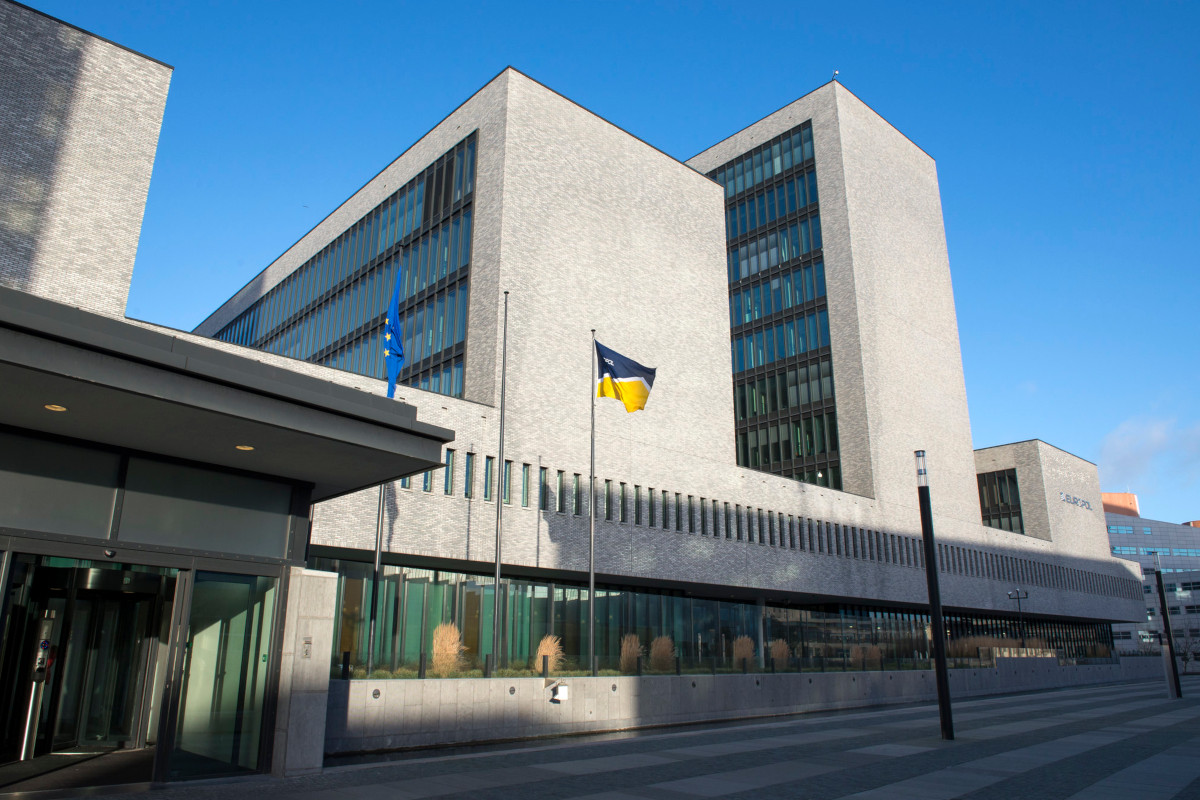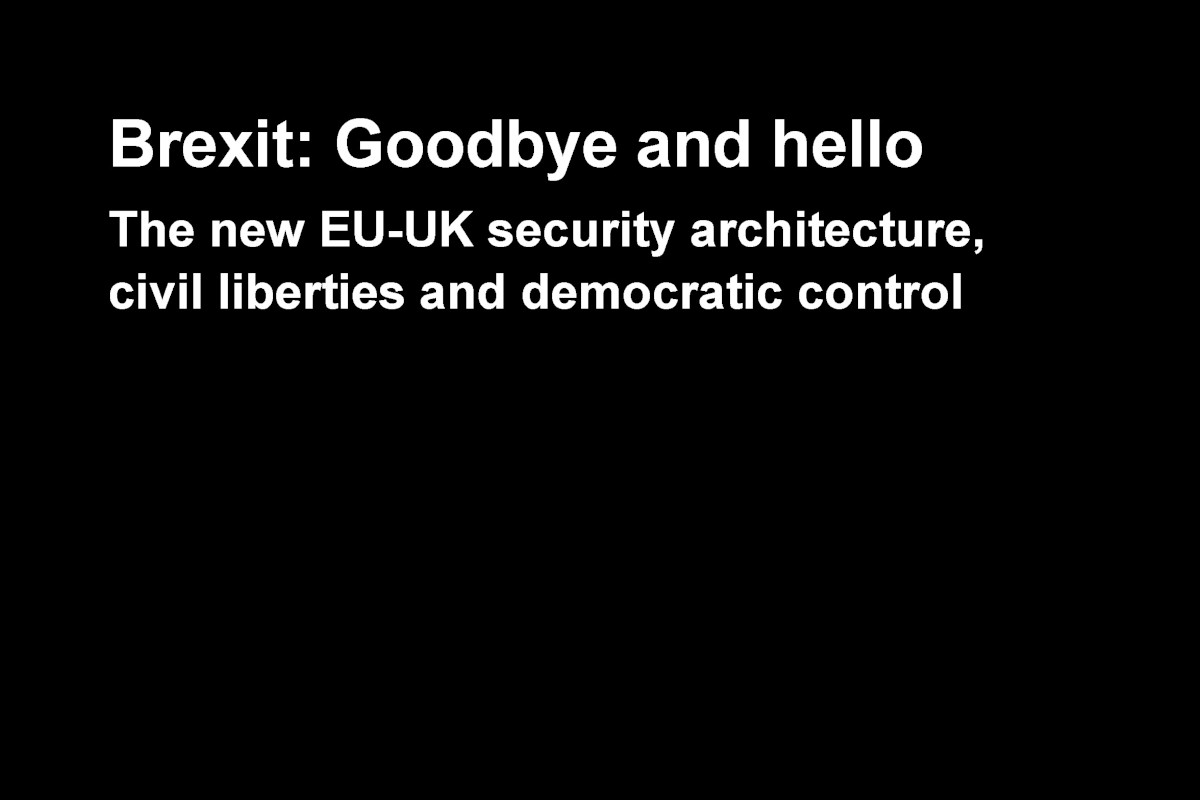2022

EU: Legislators must put the brakes on big data plans for Europol
A letter signed by 23 human rights organisations, including Statewatch, has called on MEPs and EU governments to remove proposed new legal powers that would give EU policing agency Europol a licence to process huge quantities of personal data, including on vast numbers of innocent people. Under current plans, existing practices that have been found to be illegal by the EU's data protection authority would be legalised.

Resisting co-optation by Frontex: Italian academia and a Swiss referendum
There is growing awareness of and resistance to the role of EU border agency Frontex in human rights abuses, with a recent campaign at a university in Turin and a referendum in Switzerland seeking to halt different forms of cooperation with the agency.

EU: Tracking the Pact: Eurodac, Asylum and Migration Management, emergency measures, external cooperation
Documents recently circulated with the Council of the EU on the proposals to expand Eurodac, for an Asylum and Migration Management Regulation, "emergency measures" for use at the Polish and Lithuanian borders with Belarus, and the latest European Commission update on "the main external migration dialogues and processes since 2019."

EU: Artificial Intelligence Act: Council Presidency compromise on high-risk systems
Negotiations on the EU's proposed Artificial Intelligence Act are pressing ahead. On 13 January, the French Presidency of the Council circulated its proposed compromise on the sections of the proposal dealing with high-risk AI systems. We are making it publicly available here.

ECHR: Strasbourg Court provides a strong standard on data retention and secret surveillance
In a judgment of 11th of January 2022, the European Court of Human Rights ruled that Bulgaria’s legislation on secret surveillance is in breach of the European Convention on Human Rights. The Strasbourg-based court was asked to evaluate Bulgaria’s surveillance law, as well as several articles in the country’s criminal code.

EU: Mass travel surveillance: no problem, says court
The mass travel surveillance and profiling of air passengers carried out under the EU's Passenger Name Record Directive does not breach fundamental rights standards, says an opinion published yesterday by the Court of Justice in Strasbourg. Opinions precede the verdict of the court, and often set the tone for rulings.

Biometrics and counter-terrorism: UN briefing shows global spread of technology
The UN's Counter-Terrorism Executive Directorate (CTED) recently published a briefing on the use of biometrics for counter-terrorism purposes, offering a snapshot of how states around the world are increasingly deploying biometric technology.

EU: Artificial Intelligence Act: justice sector and high-risk systems; internal security; migration and borders; comments and presentations
We are publishing a number of documents concerning the proposed Artificial Intelligence Act, received in response to access to documents requests to the Council of the EU.

German court to rule on UK spycop’s operations
A court is to examine the legality of outed spycop Mark Kennedy's activities in Germany, where he was present on multiple occasions between 2003 and 2009. The case concerns Kennedy's spying on Jason Kirkpatrick, as the latter coordinated press coverage around protests in 2007 and 2008.

EU: Tracking the Pact: Border checks, funding, deportations and reception at the centre of the "gradual approach"
On 20 January the French Presidency of the Council circulated a paper examining "four issues to discuss further" relating to its "gradual approach" on the Pact on Migration and Asylum: external border checks and registration; financial and material support to member states with external borders; return and readmission policy; and reception and relocation. The paper highlights the need to "prevent the risk of absconding," which could be done by "increasing detention capacity".

Europol: Council Presidency proposes workaround for illegal data processing
The French Presidency of the Council wants to enter secret "trilogue" negotiations with the European Parliament and European Commission on new rules governing Europol, the EU policing agency, with a text including a "workaround" to allow Europol to hold on to vast quantities of personal data that it is currently processing illegally.

EU seeks global counter-terrorism partnership with Egypt
The EU is to put itself forward, alongside Egypt, for the joint presidency of the Global Counter-Terrorism Forum, "an informal, apolitical, multilateral counterterrorism (CT) platform that contributes to the international architecture for addressing terrorism." The idea was first suggested by the European External Action Service and was recently approved by the Council despite Egypt's appalling record of human rights abuses in the name of counter-terrorism.

UK can join EU surveillance schemes with no parliamentary scrutiny, warns new report
The UK can join intrusive EU surveillance schemes including a pan-European network of police facial recognition databases with no need for parliamentary debate or scrutiny, says a new report published today by Statewatch.

EU: Police to support anti-encryption policy development
A police "operational action plan" on preventing child sexual abuse includes a requirement for almost 30 states and EU agencies to gather five case studies, each intended to contribute to EU "policy development" on preventing and combating sexual abuse. While few would disagree with the ends, it is likely that one of the proposed means will be to undermine encryption, threatening the privacy and safety of all users of digital communications technologies.

EU: Tracking the Pact: French Presidency proposes "a gradual approach" on migration and asylum
At the beginning of January the French state took on the Presidency of the Council of the EU, and last week proposed "a gradual approach" to the Pact on Migration and Asylum. This could also be viewed as a 'pick and mix' perspective, with the emphasis on those measures that member states are most likely to agree upon.

EU: Europol: "Significant progress" on legalising illegal data practices
There has been "significant progress" in negotiations on new powers for EU police agency Europol, according to a document circulated by the Slovenian Presidency of the Council in December. The police agency was recently ordered to delete vast amounts of personal data that it was processing illegally - but the new rules would allow those practices to continue. Member states may be hoping to approve the new rules before the agency has to implement the deletion order.

EU: Cybersecurity and law enforcement authorities
Cybersecurity is an issue of growing importance in EU institutions, with negotiations on a renewed Directive on network and information security underway. Documents published here show that last September, the Slovenian Presidency of the Council started a discussion on stepping up the role of law enforcement agencies in cybersecurity affairs, and this month the EU will launch a cybersecurity exercise seeking to test its "resilience" to a cyber-attack by a hostile state actor on vital economic supply chains.

Bulgaria: Secret surveillance data "could be used for nefarious purposes" due to lack of safeguards, rules ECHR
The European Court of Human Rights has ruled that Bulgarian law regulating secret surveillance by the the police, prosecutors, and military and security agencies is of insufficient quality to protect individuals against violations of the right to privacy, and that the data gathered through secret surveillance operations "could be used for nefarious purposes" due to a lack of safeguards.

EU: Frontex asks court to reject human rights case, seeks legal costs from asylum seekers
EU border agency Frontex is demanding that judges reject a complaint against it at the European Court of Justice, while seeking to recoup its legal costs from the applicants - an under-age asylum seeker and a recognised refugee.
Spotted an error? If you've spotted a problem with this page, just click once to let us know.